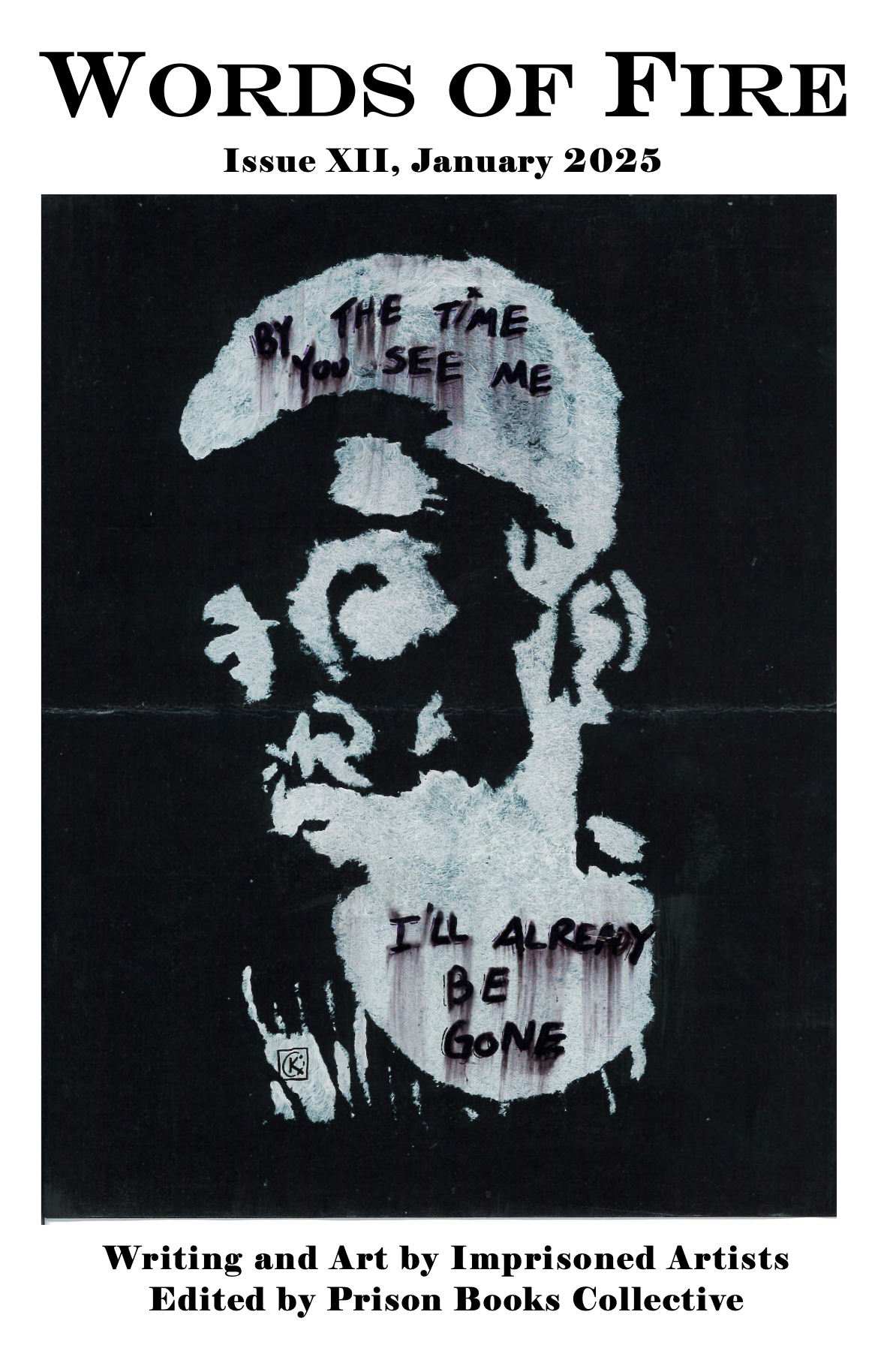Prison Books Collective Resources
We send a resource guide along with all of our packages that includes information about where incarcerated persons can find support. Our zine catalog provides a list of printed materials we send. Our zines are short, printed works on topics such as self-help, prisoners’ rights, physical exercise, Black history, and LGBTQIA advocacy.
Words of Fire is our literary magazine for incarcerated artists. Issue 12 was published in January of 2025, with 25 pieces by 17 writers and visual artists. If you are downloading a copy of Words of Fire, consider donating to support our work, with a suggested donation of at least $10.

PBC Resource Guide (PDF)

PBC Zine Catalog (PDF)

Words of Fire 10 (PDF)

Words of Fire 11 (PDF)

Words of Fire 12 (PDF)
Support for the Incarcerated and Returning Citizens
We are only part of the solution to helping people survive and transition from the justice system. Below are organizations in North Carolina committed to help people affected by the long reach of mass incarceration.
DurhamCares, a Durham-based community support organization, maintains a list of local and national organizations responding to mass incarceration.
Jubilee Home is an organization in Durham that helps men transition from incarceration to independent living by providing housing, employment, and therapeutic services.
Decarcerate NC is an organization working to release people from the North Carolina carceral system, focusing especially on Black North Carolinians.
The Criminal Justice Resource Center in Durham provides a range of services for people who have been or are incarcerated, or have come into contact with the justice system.
The Capital Restorative Justice Project works with families and communities in Durham who have been affected by murder, faciliting the process of community-led restorative justice.
Southerners on New Ground (SONG) is leading a multi-issue southern justice movement that unites us across class, age, race, ability, gender, immigration status, and sexuality.
The Massachusetts-based Prison Books Program maintains a database of books-to-prisons organizations across the United States, Canada, and the UK.
Empowerment Avenue provides resources for artists in prison to publish and receive payment for their work in mainstream venues such as journals, galleries, museums, and other organizations.
The Prison Journalism Project promotes and publishes journalism written by prisoners to bring to light the effects of mass incarceration from imprisoned people themselves.
Intelligent's Guide to Higher Education after Imprisonment explains how people can pursue and finish and degrees upon release.
Critical Prison Resources
It is our responsibility to educate ourselves about the incarceration system in the United States and its far-reaching effects.
“Resource Guide: Prisons, Policing, and Punishment” by Micah Herskind
“Literature Locked Up: How Prison Book Restriction Policies Constitute the Nation’s Largest Book Ban” is a policy paper by PEN America that details the types of book bans prisoners face, the arbitrariness with which they are implemented, and the lack of transparency and oversight that leads to bans on titles from Nobel Prize winners and leading historical figures.
The “Prison Abolition Syllabus 2.0” published by Black Perspectives is an extensive list of critical Black perspectives on the expansion of the prison system and abolition efforts.
The Triad Abolition Project is a grassroots organization seeking to replace the carceral state with systems of care for communities.
Prison Legal News is a pubication of the Human Rights Defense Center covering the United States carceral system.
Critical Resistance is an organization working to end the global Prison Industrial Complex.
The Marshall Project is a nonpartisan, nonprofit news organization reporting on criminal justice in the United States.
The Ear Hustle podcast covers the daily realities of life inside prison, told from the perspective of imprisoned people.
The Beyond Prisons podcast discusses incarceration and prison abolition, supporting people directly impacted by the system.
